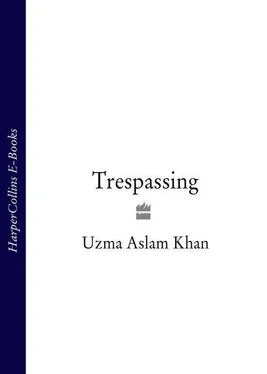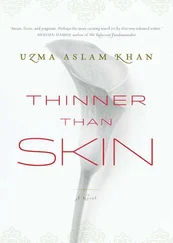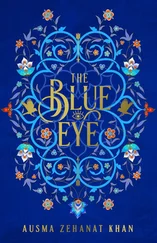‘So it’s entirely chance — this man or that. X or Y. Random?’
‘That’s twenty. And yes, dear Dia, chance has a lot to do with it. If I fell in love, chance would have a hand. If I marry at thirty, chance will have a hand. If I have triplets, guess what: chance. I don’t see why this offends you.’
‘Some things you can control,’ Dia snapped back. ‘I suppose by “good” you mean his name and his American education?’
‘That’s twenty-one,’ said Nini, sealing her lips.
‘And this is twenty-two: How much of your faith in chance has to do with your father’s slumping business?’
Nini’s mouth twitched. It was her turn to look away.
Dia wanted to be the one to take her hand now. She wanted to say, You’re beautiful, desirable, and will have many chances yet. Good chances. But she couldn’t. Nini had given herself over to desperation and Dia hated her for it. Brushing her uniform she rose, and began walking back toward the path that linked the school with the college.
MARCH 1984
After the assault, his left ear transmitted sound like a cowry pressed to a normal ear and slowly withdrawn: the world had become the echo of a fading sea. At rare moments, when aroused by fury or desire, the pitch rose to an ominous roll of a drum, as if the ear cavity had filled with water again, just as it had the day the fourteen-year-old was battered by the egg-thief, and tossed into the chipped slate waves. At such times the pain was so severe the young boy embarked on a mystic quest to contain the thundering turbulence within him like a dam he swore to never let a soul unlock, not even the girls from the city he was soon to scope.
Days were busy. He helped at a teahouse run by his grandmother, a place exclusively for women. When he first began, soon after his grandmother found him bashed and beaten, rocking in the sea, he’d been the oldest male to ever set foot in the ramshackle hut. Initially, customers complained. But the proprietor argued her grandson was neither emotionally nor physically fit for either the city or the sea, to which a few stubborn fishermen still set out every evening, competing in vain with the trawlers that had stolen their sea space. Besides, she pleaded, the boy was deaf. He could not spoil the luxurious privacy of their female sanctuary. Reluctantly at first, the clients conceded. It was hard to argue with a woman who served good tea.
Within a few months, the boy’s mysterious silence, his calm, and most of all, the ease with which he did women’s work — scouring pots, refiring hookahs, weaving fish-baskets — endeared him to them. Some even enjoyed flirting with a youth who was neither man nor boy. They poured their secrets into him.
At night, after the women returned to their homes, he helped his grandmother clean the tavern. Then he walked along the beach alone. The lights of the huge trawlers blinked, warning him away. But he’d stay, picturing their immense conical nets at the bottom of the sea, swallowing what his father’s net should, and shouldn’t.
He remembered clearly the face of the man who had lunged for the turtle’s egg, two years ago. He saw himself again as on that night, a child with long black ringlets, smoking a K2, watching the reptile shovel her nest. He saw the shadow on the dune, the woman in only a flimsy tunic waiting for the prize her man had promised. He shut his eyes against the pain surging in his eardrum, but still went on remembering.
He is running. The man is a hulk of a rogue, at least six foot four, soon joined by others. Together, they overtake him. His locks are ropes with which to drag him out to sea. The salt burns his eyes as he rocks, back and forth, back and forth. He keeps his stinging eyes glued to the rising sun, a stargazer writhing in a net. And just when it seems the sea will swallow him, he touches a giant marbled shell. It carries him over watery hills till his path is smooth. He presses his cheeks into the turtle’s hump of a home, going where she goes.
On the beach, calm descended. The flickering lights of the trawlers anchored too close to shore no longer infuriated him. The drums died. His ear once more registered sound like a cowry. In the two years since the attack, he’d learned the secret of overcoming the torture of memory: focus on one beautiful thing.
His head held high, Salaamat gently kicked the phosphorescence around his feet. Then he walked back to his house, one of the many quarters in the maze of crumbling walls that comprised the villages of the coast of Sindh. Packs of stray dogs rolled in the sand in front of the compound. They panted. Curiously, he could hear that. Sometimes he could hear much more than that.
He passed his grandmother and the other elderly women stationed in front of the complex. They were the sentinels of the village. His grandmother had been sitting here the night he’d nearly drowned. She’d seen his body loll in the waves and called for help. She sat here long into each night and then again at dawn, pitching her thoughts out to sea as her sons had once pitched their nets. But no one could trawl in her waters. She beckoned him to her.
He settled near a tailless black dog with bald patches. It scratched its chin against his heel. The old woman pulled on her hookah. He could hear this too. The urn was of glass, shaped like a large water drop, with bands of colored thread twisted around the middle. He watched the smoke rise and swirl around the water in the urn. He heard the low gurgle, and the high-pitched suck as the smoke traveled up the long slender pipe, then flew out in two sinewy ribbons from his grandmother’s nose. She passed the hookah to the woman on her far side. Then, slowly, she took a long sip of her famous tea. He alone knew the reason for its fame: liquor. She brewed her own. The row of elderly women was almost intoxicated. Almost. They never crossed that line. Only their husbands did. It was one reason the women kept the teahouse for themselves.
‘It is time for you to go now,’ said the old woman.
He looked up, surprised. Two years ago, his father had wanted him to try his luck in the city, but she’d insisted he stay, arguing he hadn’t regained his strength since the assault. She’d forbidden the subject to be broached again. But now she opened it herself.
‘Go? But where?’
‘Where else,’ she replied flatly. Her voice was husky, and as always, uncompromising. ‘There is little left for you in this village. The fish are gone. Your spiritless father lies in the darkness of his room, willing the current to turn back to the days of his forefathers. It will not. Those ships are here to stay.’ She spat, and sucked on the hookah again.
The dog beside Salaamat rolled on its side, revealing five swollen teats. He thought angrily of his father, who mourned uselessly at home, while his mother labored at a shrimp-peeling factory set up by the foreigners. He looked at the gaudy hulks anchored nearby. She worked for them. She swallowed her outrage and gave her life to the enemy. They gave back five rupees for every kilo of stolen shrimp she cleaned.
The secrets of the women who met in the teahouse rang in the ear that only he and his grandmother knew was not entirely deaf. Some of those women were here now. Like him, they did not want to go inside. Their stories sprayed and splattered at his feet like the hissing surf. There was Farya, whose cotton nets were lost to the nylon needs of the trawlers. She sought comfort in jeering at Shireen, who sold her body to feed her husband’s heroin needs. And there was his poor mother, whose punctured, obnoxious hands his father pushed away. It was Naila who gloated over that, right in his ear.
Читать дальше
Конец ознакомительного отрывка
Купить книгу












